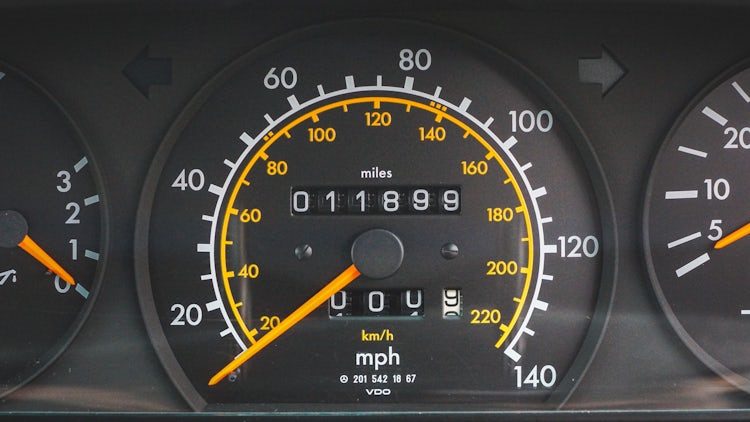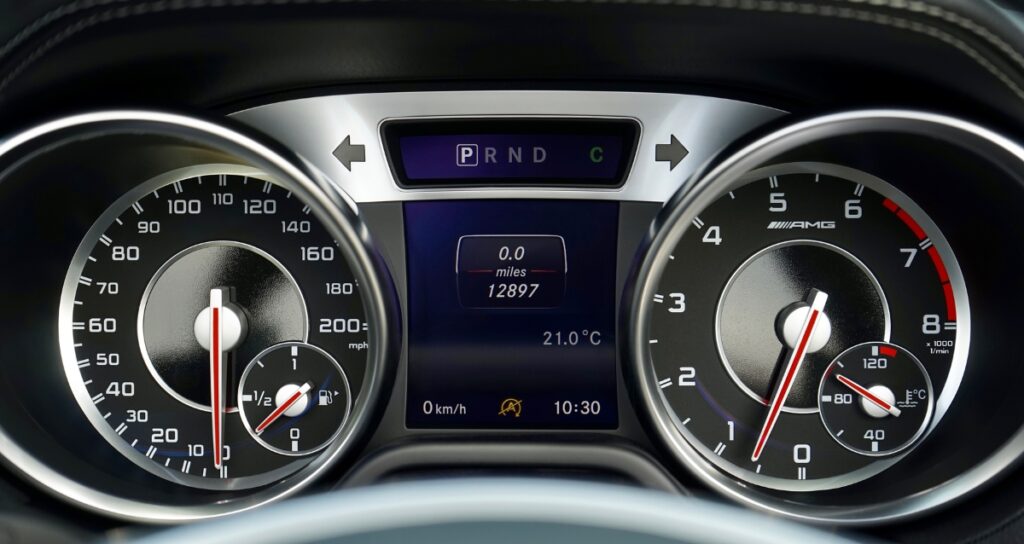A car’s mileage is an important aspect when buying used; our guide sets out what can be considered a good mileage
When buying a used car, there are plenty of things to consider, from the body style and the fuel type, to the colour and the gearbox. How many miles a car has covered is also an important factor.
If you’re concerned about the risks and benefits of buying a high mileage car, or simply want to know what is considered a good mileage for a used car, this guide will answer your questions.
Why does mileage matter?
Mileage matters because it gives you a good indication of how much wear and tear a vehicle has been put through.
Typically, when comparing two otherwise similar vehicles, the one with the lower mileage will be the more appealing because the mechanical components will have suffered less wear, while the bodywork will have seen reduced risk of dings and dents.
There’s no hard and fast rule, though, with plenty of other things to consider, so we’ll address these points too.
What is the average mileage of a car?
It’s often said that the average person does 10,000 to 12,000 miles per year, but those numbers are becoming increasingly outdated.
Since the 2000s, this number has dropped steadily to about 7,500 miles per year in 2019 (before the pandemic skewed the numbers), meaning that you can expect a five-year-old car to have about 37,500 miles and a 10-year-old car to have 75,000.
What is considered high and low mileage for a used car?
To get an idea of what is considered a ‘normal’ mileage for a particular used car, you can divide the quoted mileage by the number of years on the road.
If the result is higher than 7,500 this could be considered a high mileage car, and if the number is below, it’s low mileage.

For example, a three-year-old car with 30,000 miles on the clock has averaged 10,000 miles per year, meaning it has covered more than a typical car its age. However, a five-year-old car with 30,000 miles has covered 6,000 miles each year, making it low mileage.
How many miles can a car do before it dies?
There’s a psychological barrier that exists at 100,000 miles. Traditionally the advice has been to avoid cars that have hit six figures, but this isn’t necessarily true.
The reality is that cars can happily travel well beyond 100,000 miles – simply look at the American market, where people travelling long distances between cities regularly rack up more than 250,000 miles.
So should you buy a high mileage car? Again, unfortunately, there’s no straight answer. Cars will happily go well beyond 100,000 miles when maintained correctly, so a well-documented service history should put your mind at ease when considering a car that has travelled far and wide.
It’s also fair to say that cars run best when they are used. A fastidiously maintained 10-year-old car with 150,000 miles could be a far better prospect than a car of the same age that has only done 30,000 miles, but has sat for long periods of time getting flat spots on its tires, dried-up seals, rings and gaskets, gunged-up injectors, a stretched timing chain, and more potential defects besides.
What else is important when considering a used car’s age?
The figures above are a great guide, but they should not be taken as gospel, as many other factors should be considered.
Motorway miles
Many fleet-friendly models will likely have racked up their miles on the motorway, where the engine has had time to get up to temperature and the consistent speeds are not too taxing.
Here, 100,000 miles should be of little concern, assuming that the car has been well looked after.
Detect Low mileage signals
Low-mileage diesel cars could be more of a concern. These engines need to get up to temperature on long runs occasionally to clear the diesel particulate filter (DPF). If this hasn’t happened, it could clog up and cause issues.
Even with other fuel types, a very low mileage could indicate regular short, stop-start journeys, where the car doesn’t get up to temperature. This can increase wear and tear and could cause issues down the line.
Service history
A comprehensive service history is a sure sign that a car has been looked after throughout its life. The more miles on the clock, the more important these documents become.
Check the dates of each service to ensure the work has been regularly carried out, and query any large gaps.
So, what mileage is good for a used car?
As a basic guide, the typical car will travel around 7,500 miles per year. So you can multiply a car’s age by 7,500 to find a vague target mileage.
As we’ve discussed, though, there are other factors such as service history and the type of vehicle and driving that has taken place, so don’t be too rigid when looking at mileage.













